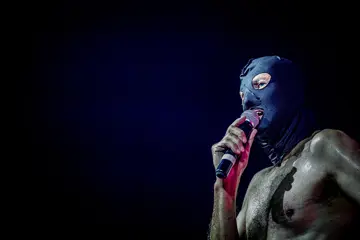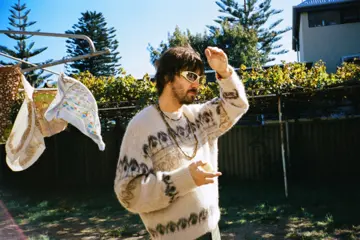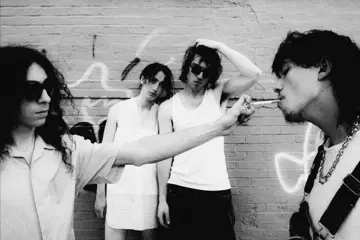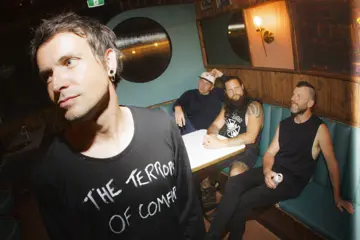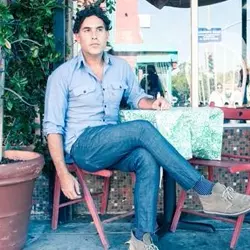 Joshua Radin
Joshua RadinThe latest record from US acoustic artist Joshua Radin, Onward And Sideways, was never intended for release. In fact, its 13 songs act as love letters to a Swedish girl the humble muso was trying to win over. If you're familiar with Radin's lush voice and beautiful guitar work, it's not surprising it worked. "I think I'm going to be here for the summer," Radin begins on the European country.
The tale of Onward And Sideways begins seven years ago and, much like the shows on which Radin's songs often feature (Scrubs, Grey's Anatomy), it's a poetic one that deserves its own spot on the small screen. "I met her in a hotel lobby in New York City. When I met her she had a boyfriend, so I couldn't do anything. I don't really believe in hell, but if I did, there's a special place in wherever that is for someone who hits on a girl who has a boyfriend."
"I don't really believe in hell, but if I did, there's a special place in wherever that is for someone who hits on a girl who has a boyfriend."
So, he waited patiently. Releasing five albums between 2006 and 2013 and touring non-stop, Radin felt like he needed a break and it just so happened the woman he admired was by then single. "I was just kind of burnt out from the road. I had released so much music, recorded so much music and I was just going and going and going. I met this girl and called my manager and said, 'Look, I'm taking a year off. I'm going to go over to Sweden and try woo this woman.'
"All these songs just started coming out, and of course my manager was shocked when I called her and said, 'I think I've got an album I want to record,' and she was like, 'It's only been a few months. I thought you want a year off?'"
Don't miss a beat with our FREE daily newsletter
It was in Sweden that he penned the new record, and while written entirely in bed (the same one that's pictured on the cover), this album, unlike a lot of his previous work, channels love not loss as a motivator, which led to wider pondering on the subject of romance in 2015. "The way we communicate as human beings nowadays is so much different than 50 years ago. And I think the biggest problem that faces the idea of romantic love in terms of monogamy — mating for life — is the amount of options that are now presented to people because of the technological advances in communication, social media.
"I'm not here to say good thing, bad thing, whatever — I personally am built for monogamy — but I don't know, maybe it's part of human evolution. Only time will tell."
His inspiration may have changed to a more 'friendly' format, but Radin's creative vision remains the same, and although love songs often have a stronger chance of being moulded to fit the charts, he's not looking release any love-produced hit singles, which is something he's retained since releasing his debut record, 2006's We Were Here. "I had no idea what I was doing at all," Radin recalls of the debut. "They were the first songs I had ever written. It's not like I had other songs and those made the cut — those were the first ten songs I had ever written in my life and I recorded them in my friend's bedroom. Not a studio or anything, they were just demos.
"When I got a record deal, a major record deal out of it, I said to Sony, 'Look, I'm not touching the record, I'm not changing anything.' Now looking back on it, I'm like, 'I can't believe I had the balls to do that. I just knew nothing about the music business, or recording or anything. I just figured, 'Well, this is what I did. That should be out there.' It's almost like your first gallery show as a painter; it's just your sketchbook."
Prior to writing music, Radin was a screenwriter, and before that he was in fact a painter, which explains his knack for painting a picture with words and why his music has featured in more than 50 TV shows since Winter first made it onto long-time pal Zach Braff's Scrubs. "I grew up as a painter, a frustrated painter, and then I started working as a screenwriter — a frustrated screenwriter. So the music really came out of just a sense of I was playing music in my spare time when I was frustrated and it was more meditative, just as a hobby, and very quickly the hobby became a career, luckily. Because it's the first thing I ever did creatively where the audience came to me, rather than the other way around."





